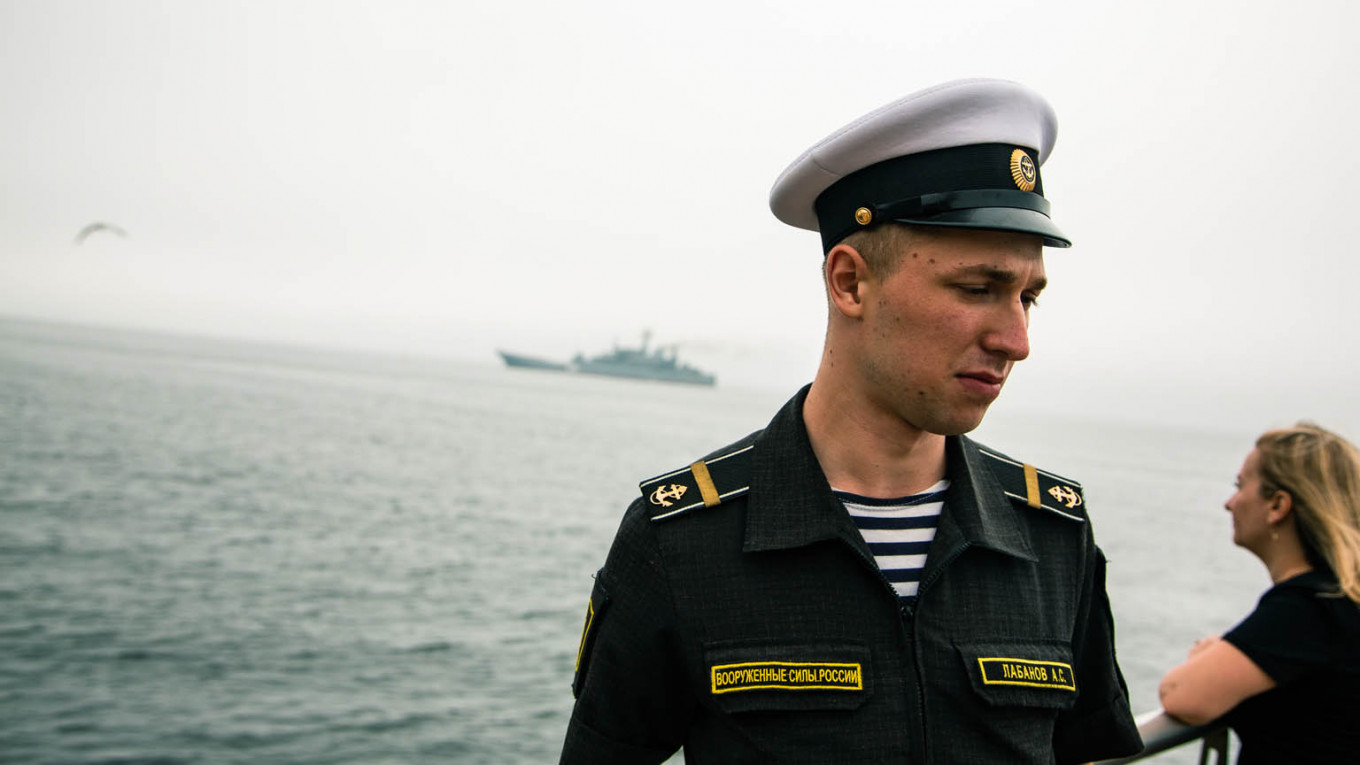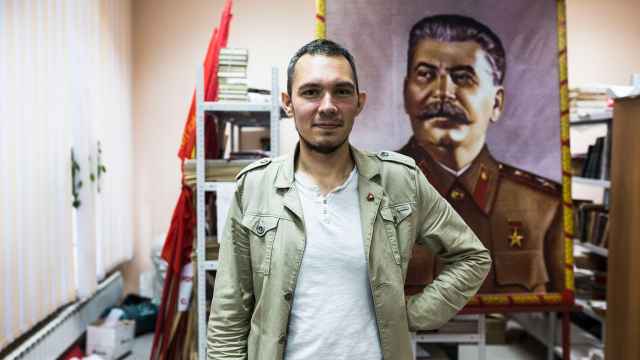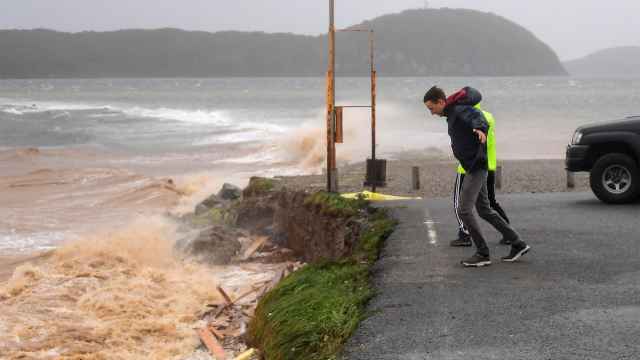Last summer journalist Marina Dmukhovskaya and photographer Georg Wallner took a trip on the Trans-Siberian from Moscow to Vladivostok. For 28 days and almost 10,000 kilometers, they talked to dozens of people in “Seat 47” (Mesto 47) riding next to them. When they returned, they turned 38 conversations into first-person stories.
Vladivostok: Andrei
From childhood on it’s just been me and my mom: my dad died in a motorcycle crash before I was even born. When I was in school, my mother was getting her education, and from the fifth grade on I was already completely independent.
In my upbringing my grandpa played the biggest role. From the beginning he showed me his cap and dagger, and he brought me up as a military man. He fought in Chechnya and told me about how terrible everything was there. How his friends were killed, how the fight for their bodies began, because the enemies often took the dead and made videos mocking the bodies. For 24 hours they would fight back just to return the bodies of the fallen to their families. My great-grandma also fought from 1941, she even went to Berlin. She was injured by shrapnel in her leg and could not walk. She told me everything she could tell a child about the war and showed me her awards: three Orders of the Red Star. I am very proud of her.
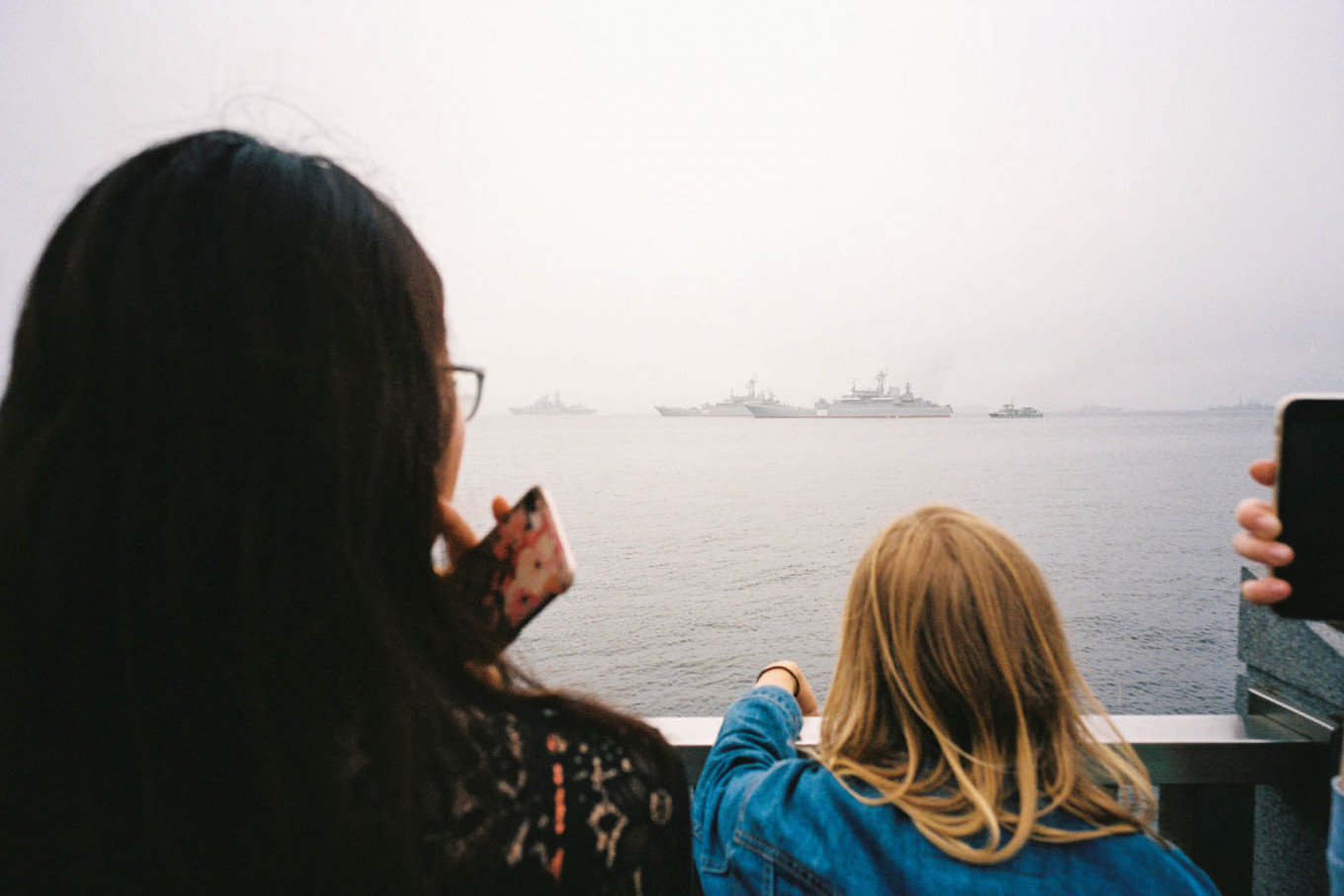
Grandpa always told me that I need to serve my country, and from 6th grade on I dreamed about joining the Navy. I’ve always loved the elements of the sea. In my room, I have sailboats and compasses painted on the wallpaper, and the clock is made in the form of a helm. After 9th grade I enrolled in the Higher Naval School. Right now I’m studying in the final course. At first it was difficult to adjust to Navy discipline. At home I’m free but there, everything is strict: drills, training, uniform… When they give you an order, you can not argue, you just say, “Yes, sir” and do it.
One time, when I was on guard duty, I saluted my sergeant, but it seemed to him that I had done it too quietly. He decided to teach me a lesson, and made me do guard duty one after another three times. It meant four days of standing with only four hours of sleep. I came home and fell into bed, just like that, weak and still in my clothes. Many can’t stand it, but I told myself “This is nothing, I'll handle it, everything is fine!”
My first time at sea the, sensations were unusual. A complete delight. Sailors have this tradition: when it’s your first time going to sea, they pour you a glass of seawater and you drink it. That means you’re a true sailor – I tried seawater, let it flow through me. I drank the whole glass in one gulp. During my first time in a small storm, I was afraid. The boat rocked hard. It was an average storm, but the ship was small and it was enough for me as a beginner. I laid down and rolled around, I was tossed from side to side.
When I first got on a submarine, we were told, “Forget what you were taught in school.” I walked toward it and thought “Wow, this is ginormous!” When I stood right next to it, it turned out to be even larger than from afar. Below the surface it extends another six meters. With my height of 1.83 cm [Editor's note: 6ft] it’s difficult. There is very very little space. You bend over all the time, people are walking around like ninja turtles. The boat may be at the bottom of the ocean for a month, during which time you won’t see the light of day. To understand if it’s day or night on the boat they regulate the lighting: in the morning they turn on the light, and in the evening they turn it down.
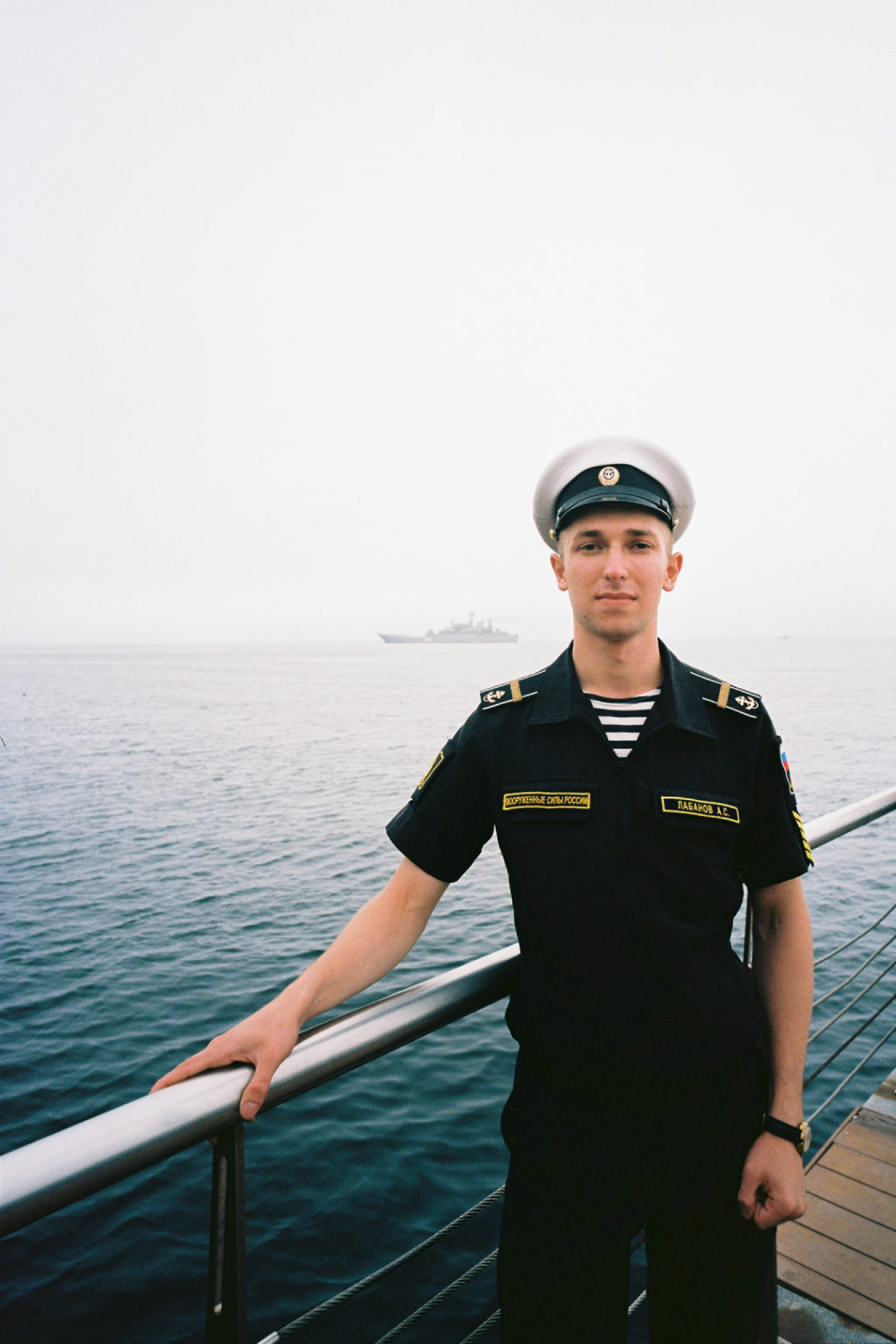
It’s psychologically difficult. You’re packed like sardines in a can. No portholes. You see nothing around you. My sailor friend says “Spin the globe and touch any part of the ocean – I’ve been there. I didn’t see anything”. Then you go out and see God's world and rejoice, thinking “God, it’s so good!” Friendships made during service – they will last for your whole life. It plays a big role in the collective work. Everyone interacts with each other. Nobody is alone. Therefore, we have such a trait – even if you are in conflict with someone over little things, if that person needs your help, you help immediately.
Being in the military it’s difficult to find a life partner. In 9th grade I started dating a girl. I thought that she was the love of my life. At the end of the year I proposed to her. I liked our little family: me and her. Then I had to leave for a month of training at sea. When I returned I accidentally saw a message from another man on the screen of her phone. While I was away, she met a civilian. She tried to talk to me, asked me for forgiveness, but can betrayal be forgiven? Can you forgive the one person you are supposed to trust? How can I go back to sea, thinking that she will be with someone else again? I myself am a faithful person, if I say that I am with you, that's the way it is. I can’t build relationships without trust. You can not do it this way.
It was very painful. But I compensated by working hard in my service and doing sports. And I survived. I don’t regret anything. It was an experience of family life. When I was making the choice, I was feeling good about it back then. The last time I saw her was at the civil registration office when we were filing for divorce. I can’t believe that I’m 21 and I’ve already been married and divorced. Hell, I’m scared to look at my passport. It feels like I’m 30 already.
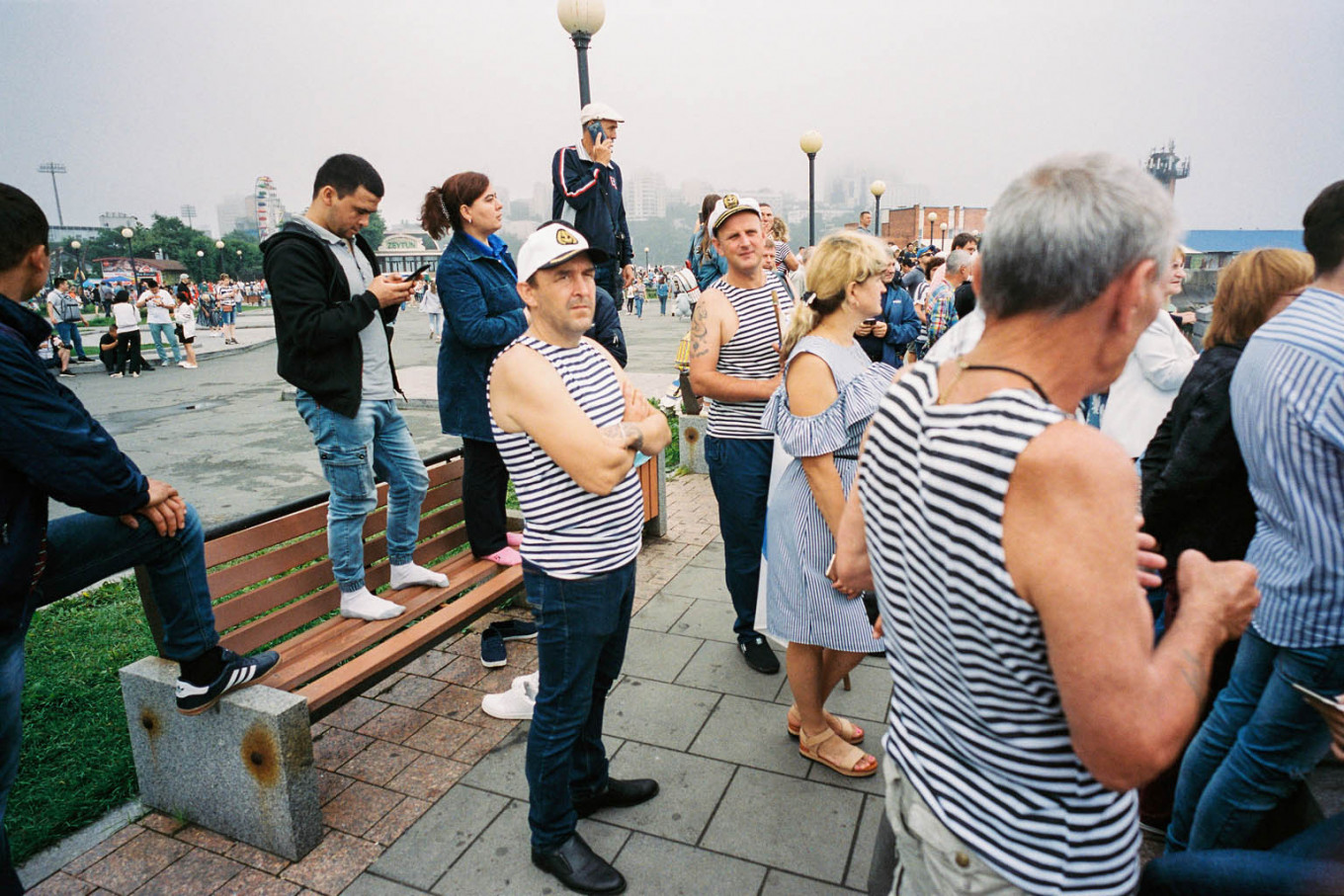
I still can't find the girl of my dreams. She doesn’t necessarily need to be smart, but at least have a head on her shoulders. I can’t say I am well-read myself, but I’ve got common sense. The wife of an army man needs to be supportive. Her attitude should be like, “Here are the bullets, who are we shooting?” Many girls try to hit on me, military uniforms work ([Editor laughs], but in their head many girls just think about shopping and hair style products. Once I could not stand it and said to one girl, “It’s easier for me to hug a birch tree. It will be more interesting to talk with the tree than with you.”
I don’t get hung up on this, for me now the main thing is the service. My goal is to become a first rank captain. Most likely, they will send me to the north of the country. In the ranking system, one year of service there counts for two, which is very good. Sure, the climate there is awful and in summer, the sun never sets. The time of day there is defined as follows: if there are a lot of mosquitoes, then it’s daytime. If there are even more of them, then it’s dusk. And if they are gone – night has come.

My grandpa is very proud of me. His eyes are shining, he is glad that I am studying to become a naval officer and that I have chosen the profession of a military man. He always says “This is my grandson – a real sailor!” At his house he has a framed photograph of me taking the oath.
There is an old saying “If you pick up a sword, you can be sure that sooner or later you will die from it.” If you choose the military profession, you must be prepared for the fact that sooner or later you will need to fight and give your life. If you are not ready for this, then you should not even go. I hope that I will be a worthy officer, that I can teach and train my subordinates the way that my grandfather raised me.
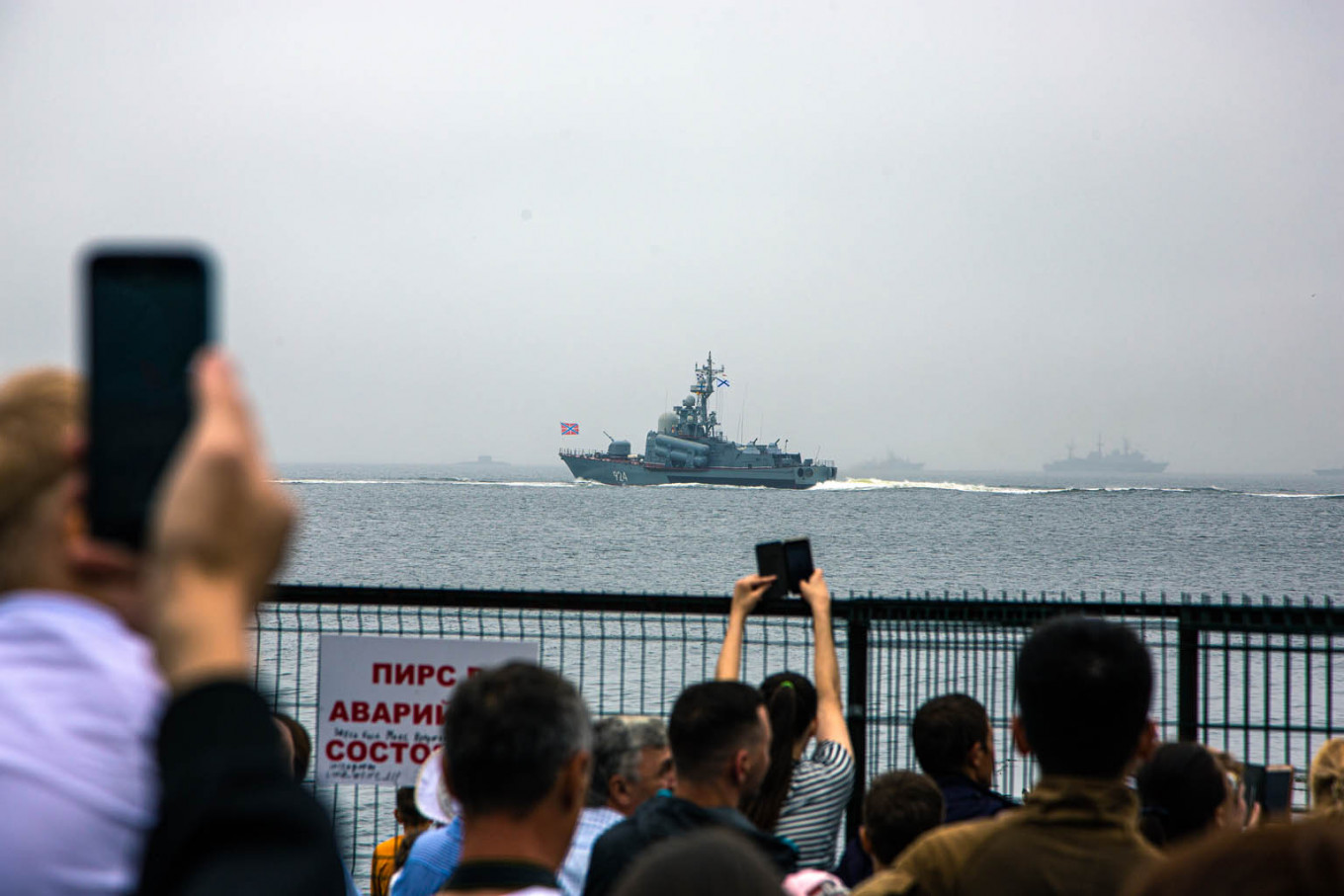
A soldier must know what he is fighting for. I know my country is dear to me. I am a patriot of my country. This is my country, I love its territory, nature, its inhabitants, people – literally everything. I grew up here. My grandfather fought, my great-grandmother gave her life for this country. I have something to lose.
This story was first published by Mesto47. You can read this and other stories or listen to a podcast on their site.
A Message from The Moscow Times:
Dear readers,
We are facing unprecedented challenges. Russia's Prosecutor General's Office has designated The Moscow Times as an "undesirable" organization, criminalizing our work and putting our staff at risk of prosecution. This follows our earlier unjust labeling as a "foreign agent."
These actions are direct attempts to silence independent journalism in Russia. The authorities claim our work "discredits the decisions of the Russian leadership." We see things differently: we strive to provide accurate, unbiased reporting on Russia.
We, the journalists of The Moscow Times, refuse to be silenced. But to continue our work, we need your help.
Your support, no matter how small, makes a world of difference. If you can, please support us monthly starting from just $2. It's quick to set up, and every contribution makes a significant impact.
By supporting The Moscow Times, you're defending open, independent journalism in the face of repression. Thank you for standing with us.
Remind me later.


